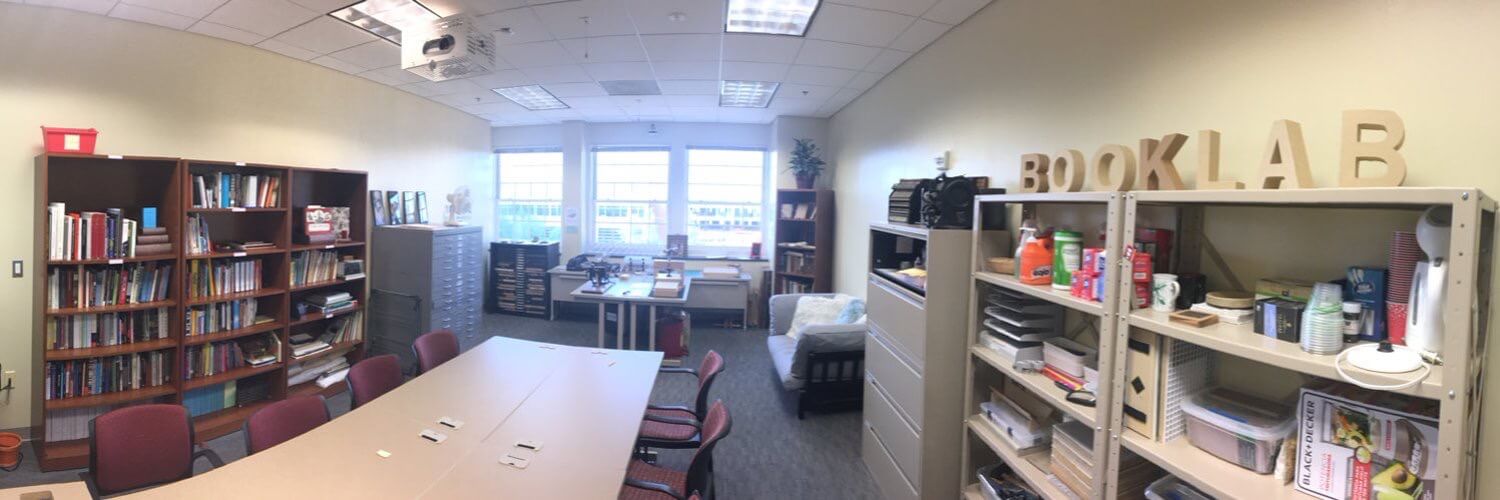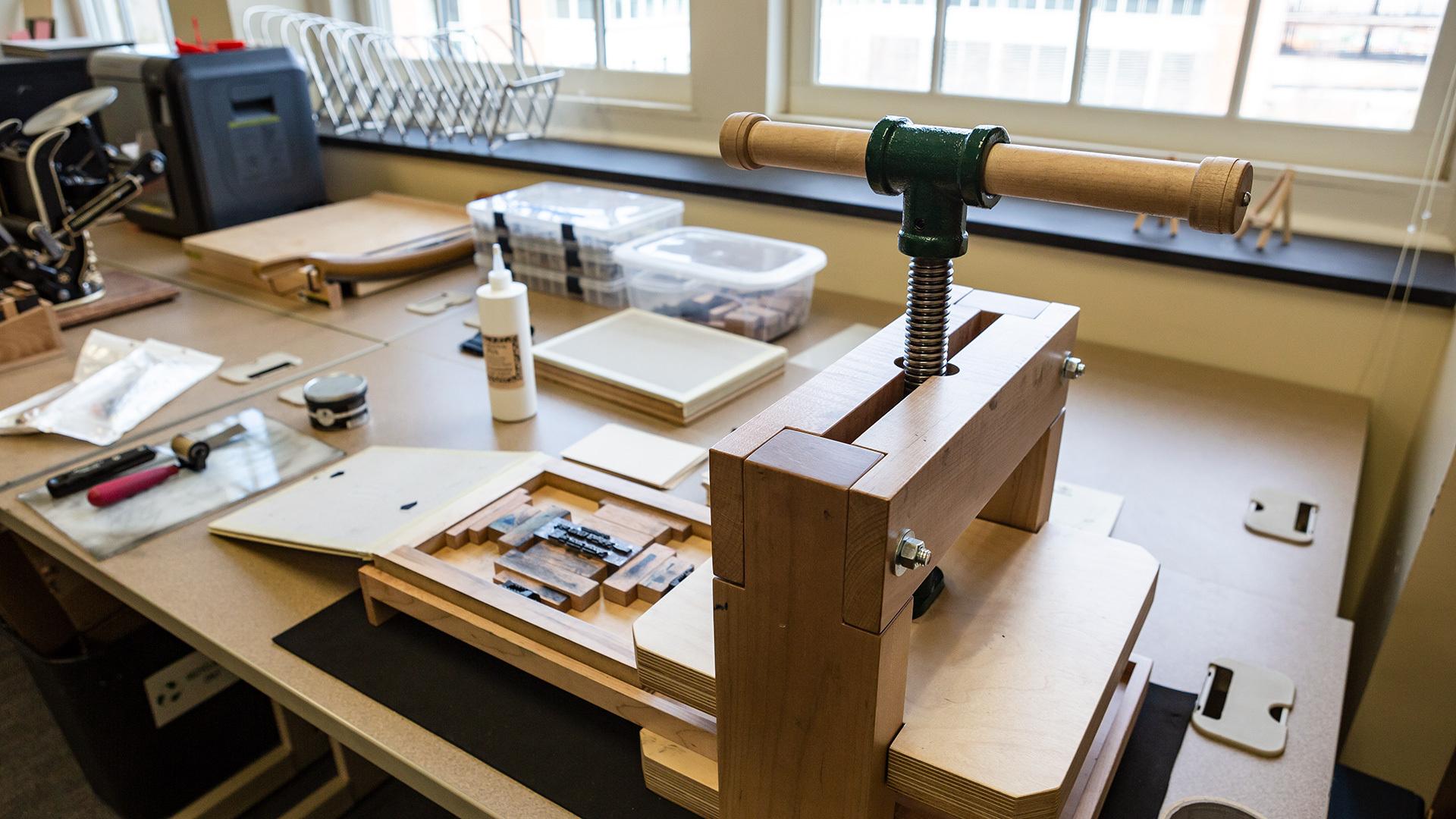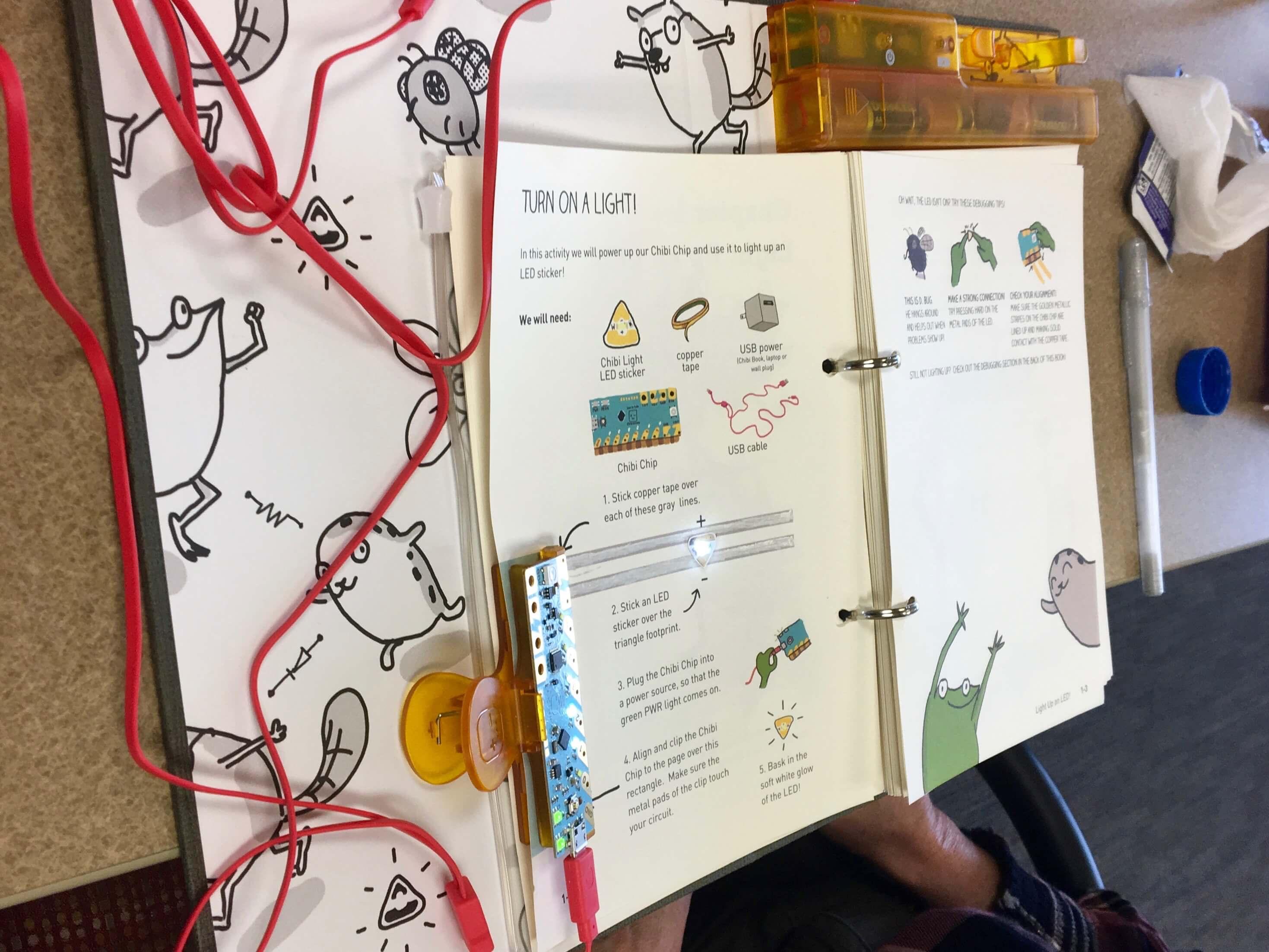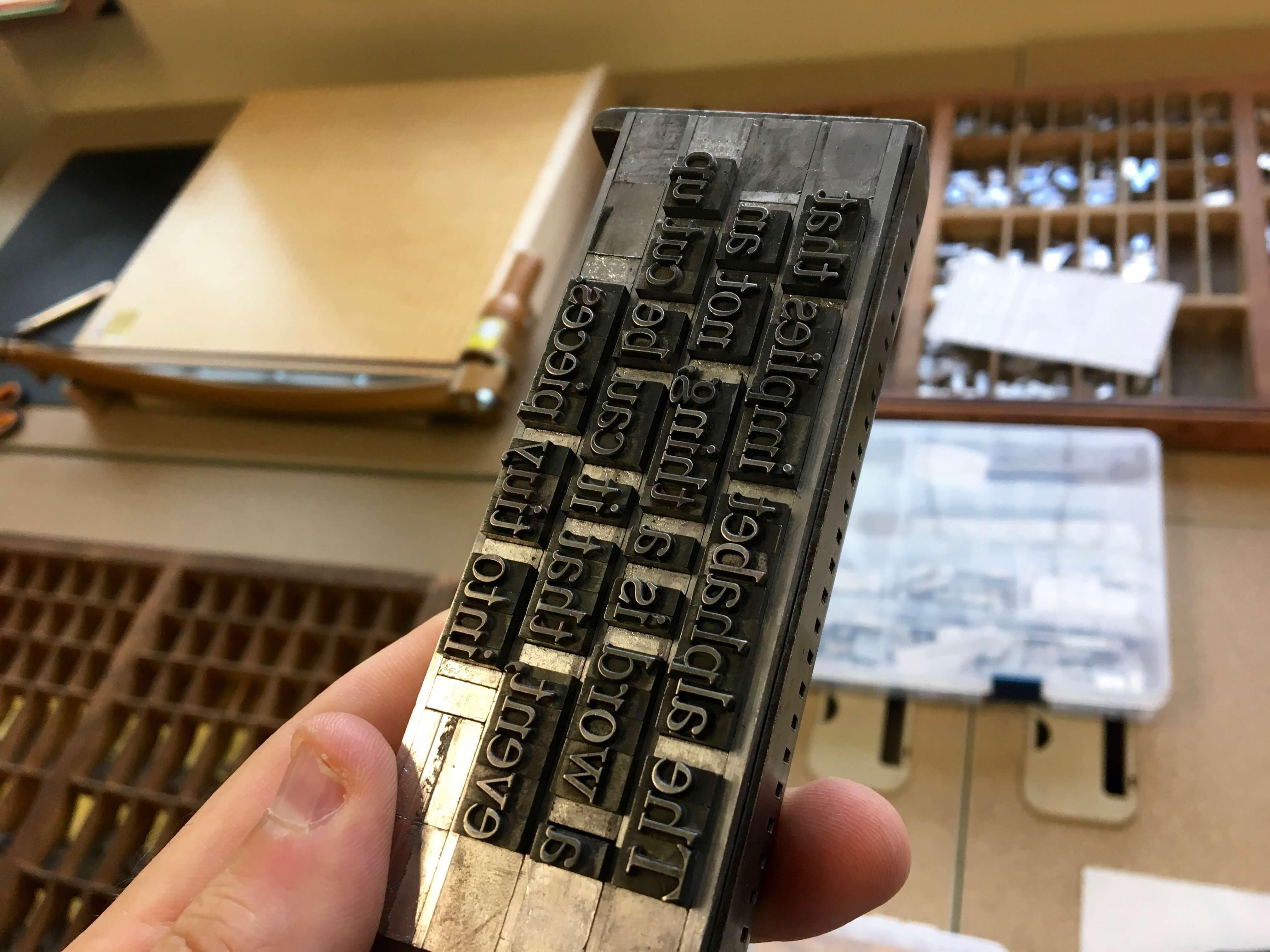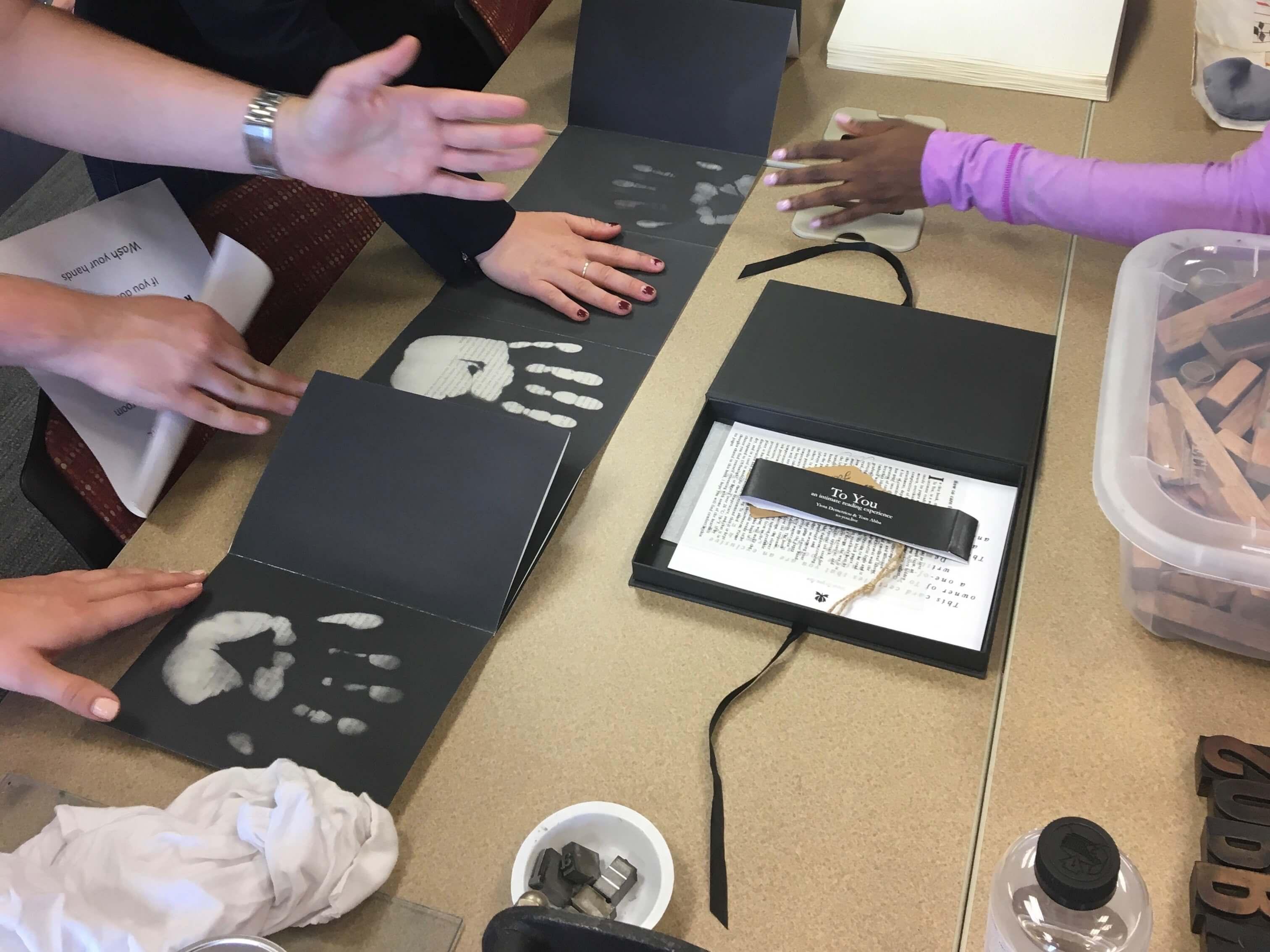BookLab is a dedicated space for the study of the codex book in all of its material, historical, cultural, and imaginative diversity. It is a makerspace, a studio, a library, and a community press. We host classes (please inquire), run workshops, organize talks and symposia, and maintain regular open hours during which anyone may drop by and consult with us or use or facilities and equipment.
Use BookLab to…
-
Collaborate/sponsor research projects
BookLab is interested in research projects at the intersection of writing, printing, and technology that fuse innovative methods with a variety of industrial fabrication materials. Examples might include thermochromic inks, conductive ink, or waterproof paper. We offer expertise in the development and application of new materials and methods to writing and printing practices in both creative and industrial contexts.
-
Find a lab/space for creating/making
BookLab's resources include three hand-presses for letterpress printing (they are: a "Book Beetle" modelled on the historic Gutenberg screw press, an authentic 19th-century Victorian parlor press, and a Line-O-Scribe sign press for poster and broadside work), a cabinet full of lead type and ornaments in various sizes and styles as well as wood type, a 3-D printer, tools and hardware for bookbinding and paper-making, sensors, circuitry, and paper computing materials (like conductive thread and thermochromic ink), two iPads, and a collection of several hundred artists' books, experimental books, chapbooks, zines, historical artifacts, and books about books.
-
Partner with UMD more broadly
BookLab is interested in creative partnerships at the intersection of writing, printing, and technology that fuse innovative methods with a variety of fabrication materials. Examples might include thermochromic inks, conductive ink, or waterproof paper. We offer expertise in the development and application of new materials and methods to writing and printing practices in both creative and industrial contexts. To that end, we are interested in potential partnerships with materials sciences, engineering, human-computer interaction, and more.

